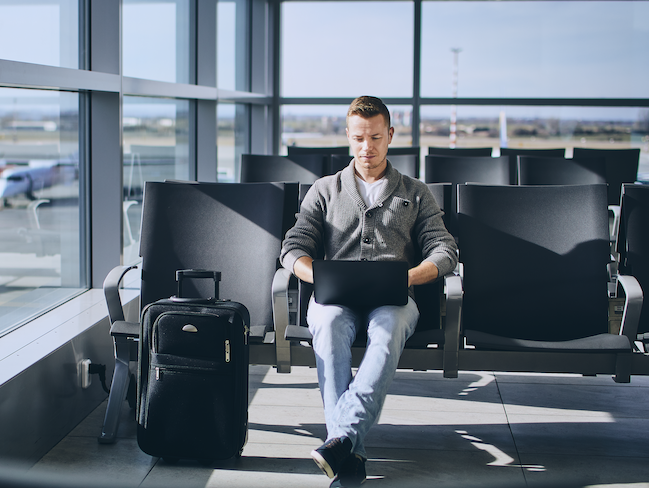Three Travel Tips to Keep your Identity and Data Safe
For many of us, vacation and business travel often involve staying connected to family, friends, obligations, and work. So how do you keep your data and identity safe from technology attacks while maintaining a level of connectivity?
Avoid Public WiFi
Using WiFi from public sources can be dangerous. Guest WiFi is often unencrypted and monitored. Often times, criminals will set up fake WiFi connections in popular travel locations that appear to be legitimate connections. This connection can be used to obtain personal information including passwords, banking information, and highly personal information.
One way to mitigate this risk is to bring a trusted WiFi hotspot. This way you know that your connection is secure. Using a VPN is also a great idea when traveling. A VPN will ensure that all information is encrypted even if the WIFI connection is not. ProtonVPN offers a free VPN that boasts a high level of privacy. All that is needed is to sign up for a free ProtonMail account and install their software.
Keep Your Devices Physically Secure
One aspect of cybersecurity many people tend to forget is physical security. It is imperative to keep positive control of your gear. When traveling make sure to keep track of your devices. If left unattended and unsecured, devices can be stolen or have malware, such as spyware and keyloggers, installed on them. Do not leave devices in parked cars and do not leave them out in hotel rooms. If possible, it is best to keep them on your person, in a bag, or stowed discreetly within reach so others do not know you have it. Often times people will find a USB port in airports or within convention centers. Be careful using these ports! These untrusted USBs may be malicious and best practice is to not use them at all. Keep your charger with you and use the power outlet not the USB port.
If visiting a foreign country, it may also be wise to obtain devices you can wipe or dispose after your trip in case they are compromised. Certain countries have been known to track devices or obtain information for personal devices when entering the country. Do research and find out if your international travels may include countries that have strict restrictions on personal devices.
Use Common Sense
One of the easiest methods of obtaining information is simply asking. People are often too trusting, especially when traveling. It is best to make sure you do not give away business or personal information such as e-mail addresses or phone numbers to possible criminals. When on vacation, you may want to use a secondary email account, not connected to personal accounts, for reservations and any vacation related bookings. Be smart about giving out your personal information. When at business conventions make sure any vendors you are dealing with are actual representatives of reputable companies before exchanging any contacts or sensitive information.
Diligence is key. By following guidelines like these in combination with using common sense you can help stop con men or worse. Safe travels!


